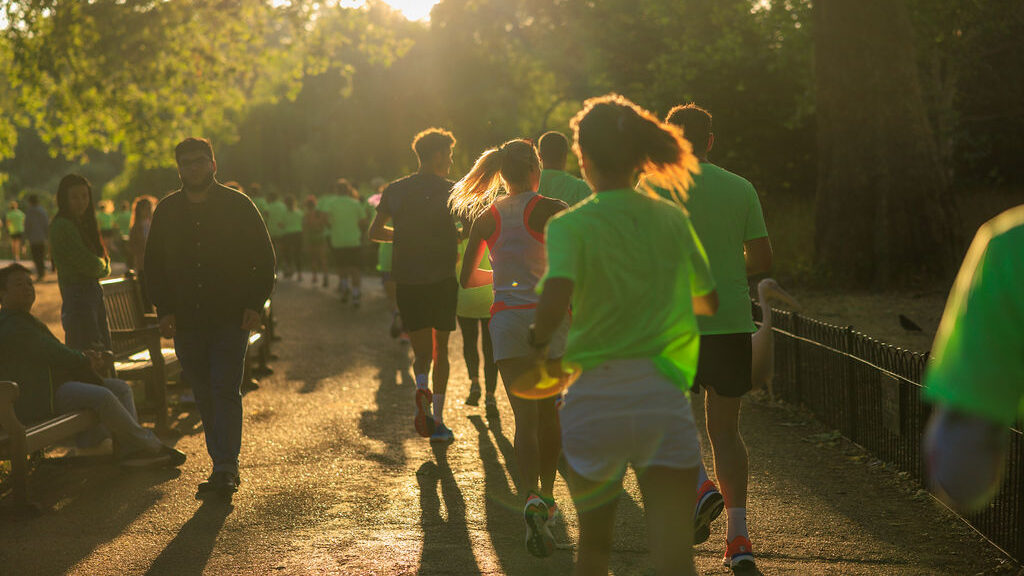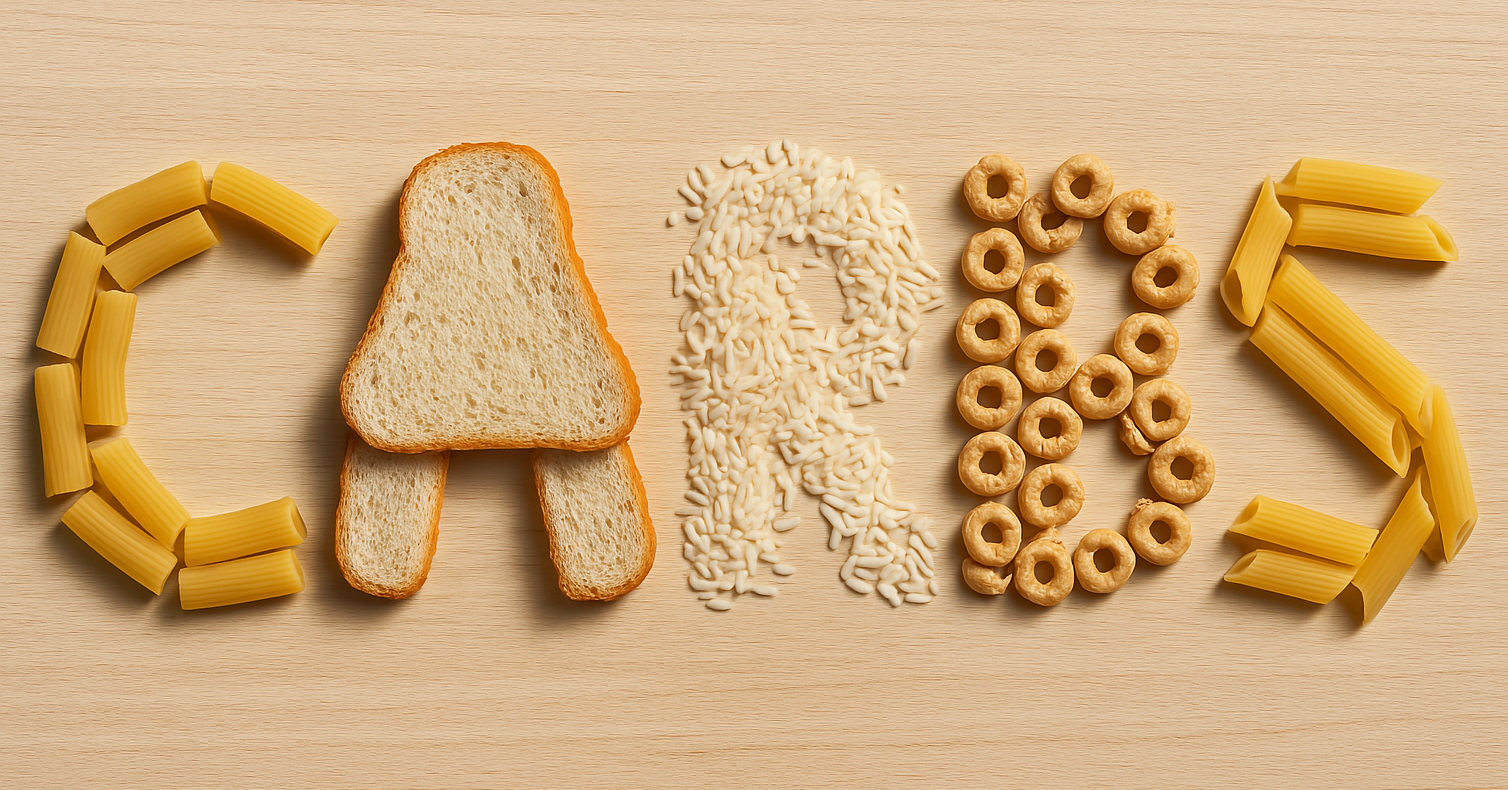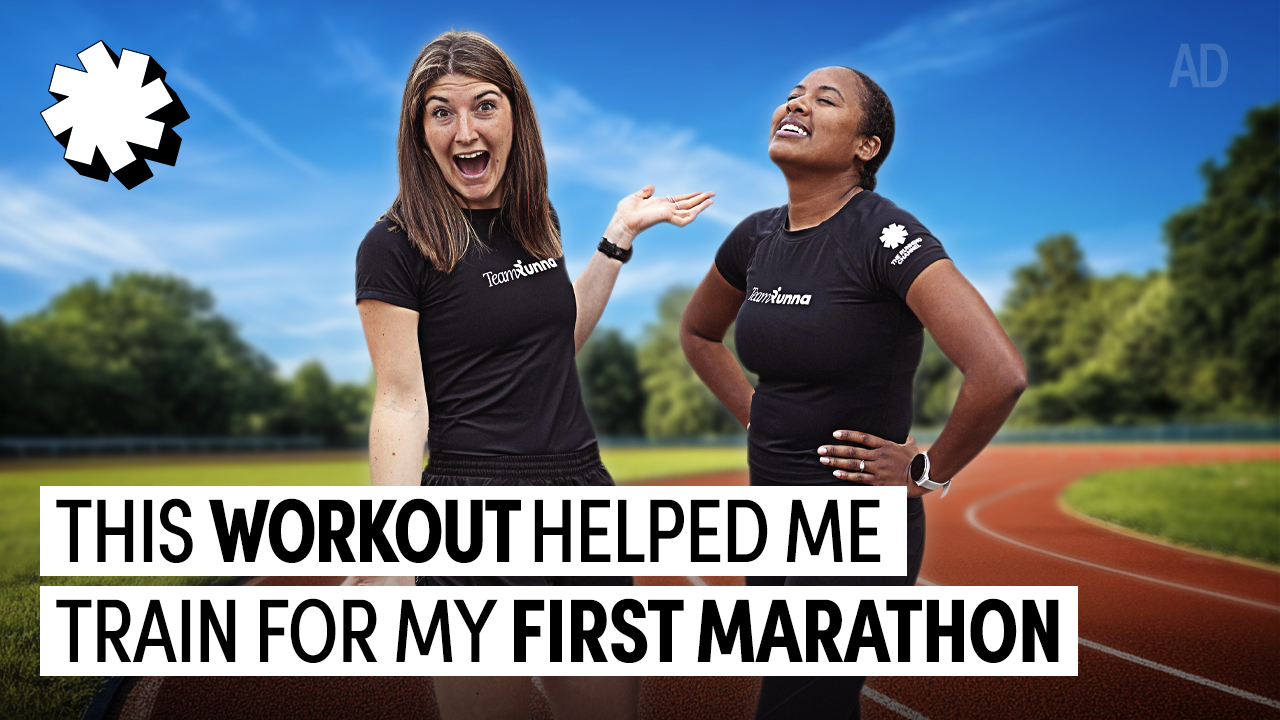11 Mistakes All New Runners Need To Avoid

It’s easy for us to write a list of things that you should do as a runner, but what about the things you shouldn’t do?
As the saying goes, we learn from our mistakes, and as an experienced team of runners, we’ve made all of these mistakes so that you don’t have to!
Here are the mistakes that runners need to avoid. And if you’re just beginning then here’s everything you need to know about getting started as a runner.
DON’T DO TOO MUCH, TOO SOON
Most running injuries are caused by overuse from trying to do too much, too quickly and too soon.
That might be trying to run too far, or too fast, all without enough strength to handle the amount of running, or without having enough time to recover after each run.
Having a coach, following a training programme or using a training app can help you get the right balance in your training.
One common issue is that newer runners try to run too fast. When you go for a run, you shouldn’t be trying to finish it as quickly as possible and you shouldn’t be gasping for breath. Slow down and take it easy. If you want to run fast then do it in short intervals after a warm up, and not straight out of the door.
It takes patience to build up the running muscles, but they do get stronger, and gradually you’ll naturally be able to go both further and faster. Just don’t try to do that too soon.
DON’T WEAR THE WRONG RUNNING SHOES (BUT DON’T WORRY ABOUT BUYING LOADS OF NEW GEAR)
You should run in proper running shoes, not an old pair of sneakers, your latest lifestyle trainers, or a pair of scruffy running shoes that you’ve used for walking for the last few years.
Proper running shoes are designed to help with the impact of running. Most runners will be fine in a pair of neutral daily trainers, but to be sure, you could go to a specialist running store to try on a few different pairs to find the shoes which fit you just right.
If you run in shoes which don’t fit right, or don’t offer enough protection, then you might be more susceptible to injuries, plus it’ll make running feel harder for you – and that’s no fun.
Also, don’t feel like you need to have loads of new gear just to go for a run. Honestly, all you really need alongside good shoes is a pair of shorts. As you run more often you can invest in more technical kit if you want it, but don’t let gear be a barrier to getting started.
DON’T DO THE SAME RUNS ALL THE TIME
Let’s say you run three times per week, but every single run is the same 5k loop which you complete in the same amount of time.
First, being consistent and running regularly is the best way to improve as a runner, so that’s a good thing.
But doing the exact same run will soon get boring, and that will affect your motivation. Also, you’ll reach a plateau in your training where you won’t see any improvement.
Mix up your training, add in some variety by running in different locations, over different terrains, go a little further some days, go a little faster on other days. If each run you do is a bit different, or you feel like it has a different purpose, then that can help to make running feel more interesting. Here’s a guide to every type of run, which might help you see that there’s a lot of variety to running.
DON’T RUN ON AN INJURY OR WHEN ILL
If you feel some pain, or are unwell, then take time to rest and recover – or things could get worse in the future.
We’ve got some information on niggles vs injuries, but the best general advice is that if you have discomfort of more than two out of 10 on a personal pain scale, or if the pain worsens as you run, then rest or do an alternative activity which doesn’t cause discomfort.
If a day or two of rest doesn’t help, then book an appointment with a sports physio who can give you the best professional advice on healing and also give you exercises to help strengthen and prevent more injuries.
And here’s some advice on running if you have a cold. Generally, you want to rest to let yourself recover, but some very light exercise (assuming you’re feeling up to it) can also help some people.
DON’T FORGET NUTRITION & HYDRATION
Here’s something you don’t get told in the beginning: running makes you hungry! And the more you run, the hungrier you get.
Nutrition is really important. Food is energy, and without energy your run is going to feel harder. Food will also help you to recover after a run.
If you run in the morning then have a small snack before running, plus a glass of water to keep hydrated. If you run later in the day, then leave at least two hours after eating a meal or you might feel some stomach discomfort.
After the run, think about the amount of energy you’re consuming. If you do a 5k run, then you might burn 200-400 calories, so that’s the extra food you should consider eating that day.
If you are a heavy sweater or run in hot weather then add electrolytes to your drink.
DON’T FORGET TO REST
Some people might not need this advice and focus more on the rest days than the running days, but as you come to train more, rest days become more important as they help your body to recover from the exercise you’re doing.
Sleep is the most important aspect of recovery. If you find yourself unable to sleep well, or if you have a few days of bad sleep (including if you’ve been drinking alcohol or are feeling stressed), then consider decreasing the amount of exercise you do on those days.
On non-running days you could do another form of exercise like cycling, swimming, the elliptical, weight training or yoga, but it’s always good to have at least one day a week where you don’t do any form of harder exercise (stretching, light yoga or a walk is fine). Those days off help to prepare you for the days ahead.
DON’T COMPARE YOURSELF TO OTHERS
It can be tempting to look at other runners who are out there running five times a week and either feel like you should be doing that, or be put off in your own running because you feel like you’re not good enough to do that.
Try not to compare yourself to others. You can take inspiration and aspiration from them, but you have to focus on your own journey, set your own goals, and be proud of your achievements, no matter how far or fast you’re going.
Be consistent, gradually add more distance each week and build up more general fitness and strength.
DON’T SET UNREALISTIC GOALS
If you’ve never run a 10k before then signing up to a marathon that’s less than six months away is going to be a big challenge (it takes a long time to train for a marathon!).
Building up to longer distances is going to take many months, and you shouldn’t try to rush it or you risk injury or just not having a good time. You can’t cram six months worth of fitness into six weeks and expect to perform well or avoid injury.
If the goal is unrealistic then it’s going to feel too challenging, which will really affect how motivated you are.
Go through the full range of race distances from 5k to 10k, then 10k to a half marathon, and then a half marathon to a marathon (if you decide you want to run that far!).
DON’T LOSE MOTIVATION (AND DON’T BE INCONSISTENT)
We all have bad runs where we don’t feel great. Perhaps we’ve had a stressful day or a bad sleep, and the run feels hard. We also all have days when we decide to skip a run.
It’s fine to skip one run, but unless you’re ill, injured, or really can’t do it, then try not to skip two runs in a row.
The best way to become a better runner is to be consistent, and that means running a few times each week. The runs don’t need to be long, and just a short run can help to build up a good weekly routine.
Can you also work on ways to stay motivated? Why are you really running? If you have running goals then try to focus on completing one day at a time, and don’t think weeks or even months into the future. Focus on today’s run and get it done.
DON’T IGNORE CHAFING OR HOT SPOTS
There’s a lot about running that’s cool. The pre-run fit check, the mid-run selfies, the post-run high, but there’s also a lot about running that’s not very cool. Stomach issues on a run, the amount of laundry you have to do, and chafing and blisters.
But chafing happens and we shouldn’t ignore it. Literally.
If you feel something rubbing, then deal with it quickly before it becomes painful or needs more attention. Use anti-chafe on areas where you might experience some rubbing, or find effective ways to protect areas (like using tape or plasters on nipples, heels and toes). Modify your kit if you need to, by cutting out annoying labels or working out how to lace your shoes in the best way.
It’s not glamorous, but the realities of running are that most of the time, we’re trying to figure out how to make it as comfortable as possible for ourselves, and sometimes that means rubbing anti-chafe between our thighs.
DON’T FORGET TO HAVE FUN!
We get it, running can be tough and some days feel harder than others to head out the door. But it can also make you feel great both physically and mentally. To keep running fun, try these tips:
- Run with others, whether that’s attending your local Parkrun, finding a local run club, or going with friends
- Get running kit that you love to put on and wear – look good, feel good!
- Set yourself small goals or targets to keep motivated, and focus on achieving them one at a time
- Try doing different types of runs, like a trail run or a short interval session, to keep variety in your running
- Change the way you think about your run and think of it as the part of your day when you get time to yourself, away from work and devices. This can be a really powerful mindful approach to running
- Sign up for a race so that you have something to train towards
Want to get running advice straight into your inbox? Join us by signing up to our newsletter!





























Running News
Ingebrigtsen Stars at World Athletics Indoor Championships 2025 – Plus All The Winners!
Sam Ruthe Is First 15-Year-Old To Run A Four-Minute Mile!
Eliud Kipchoge Will Run The 2025 Sydney Marathon!